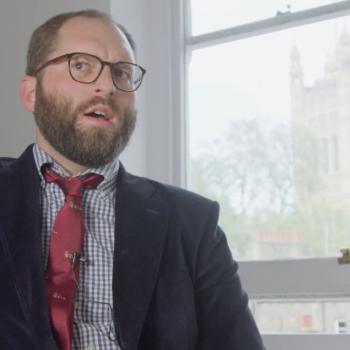As evidence that pro-lifers are winning the arguments, consider how pro-death activist Frances Kissling is recognizing that her movement needs to make some adjustments:
We can no longer pretend the fetus is invisible. We can no longer seek to banish the state from our lives, but rather need to engage its power to improve women’s lives. We must end the fiction that an abortion at 26 weeks is no different from one at six weeks.
These are not compromises or mere strategic concessions, they are a necessary evolution. The positions we have taken up to now are inadequate for the questions of the 21st century. We know more than we knew in 1973, and our positions should reflect that.
The fetus is more visible than ever before, and the abortion-rights movement needs to accept its existence and its value. It may not have a right to life, and its value may not be equal to that of the pregnant woman, but ending the life of a fetus is not a morally insignificant event. Very few people would argue that there is no difference between the decision to abort at 6 weeks and the decision to do so when the fetus would be viable outside of the womb, which today is generally at 24 to 26 weeks. Still, it is rare for mainstream movement leaders to say that publicly. Abortion is not merely a medical matter, and there is an unintended coarseness to claiming that it is.
We need to firmly and clearly reject post-viability abortions except in extreme cases. Exceptions include when the woman’s life is at immediate risk; when the fetus suffers from conditions that are incompatible with a good quality of life; or when the woman’s health is seriously threatened by a medical or psychological condition that continued pregnancy will exacerbate. We should regulate post-viability abortion to include the confirmation of those conditions by medical or psychiatric specialists.
Those kinds of regulations are not anti-woman or unduly invasive. They rightly protect all of our interests in women’s health and fetal life.
Even abortions in the second trimester, especially after 20 weeks, need to be considered differently from those that happen early in pregnancy. Women who seek abortions in the second trimester generally have special needs and would be helped by more extensive counseling than that available at most abortion clinics. Women who discover their fetuses have anomalies, teens who did not recognize they were pregnant, women who could not make up their minds – these are not routine circumstances. Mandating and funding non-directive counseling on all options is a good thing.
Finally, the abortion-rights movement needs to change the way it thinks about the state. Right now government is mainly treated as the enemy – and it does neglect women’s needs. The new ultra-conservative members of Congress are fighting to get rid of the legal right to choose abortion. The public is ambivalent about abortion. It wants it to be legal, but will support almost any restriction that indicates society takes the act of abortion seriously. For the choice movement to regain popular support and to maintain a legal right to abortion, it has to work with the state. Society and the state do have a stake in abortion policy. Reproduction is a private matter with public consequences. Women get to decide, but we all get to weigh in on what the policy should look like.
via Abortion rights are under attack, and pro-choice advocates are caught in a time warp.
















